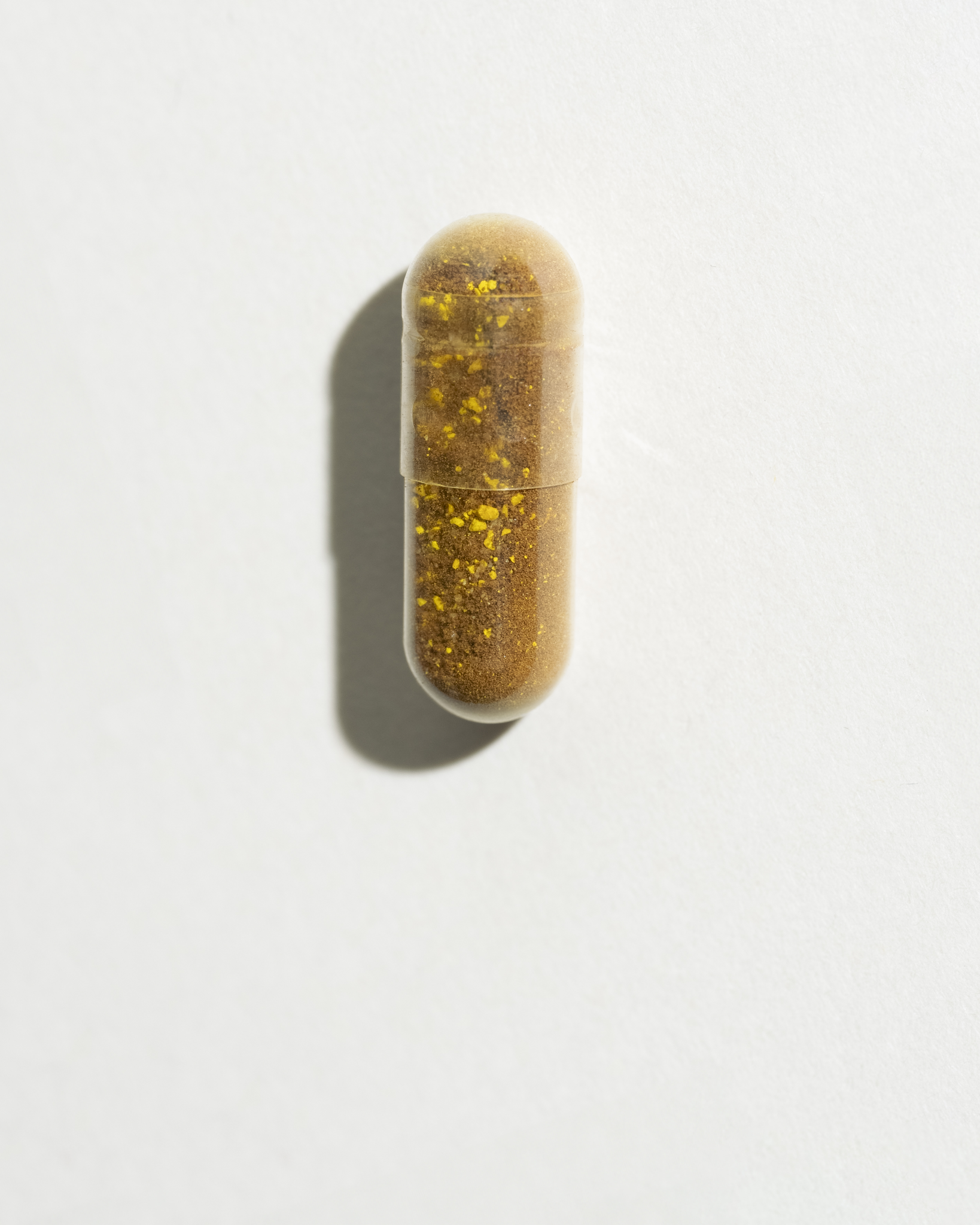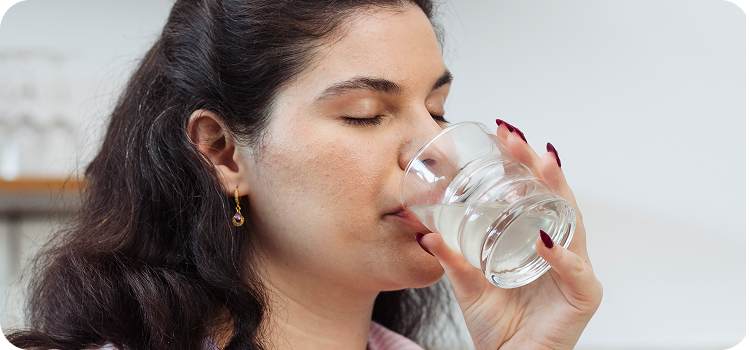Table of contents
Addiction, sugar cravings, and the link with PCOS
If you have PCOS, you've likely read everywhere that you need to be cautious with sugar. Some sources even suggest eliminating it entirely from your diet.
Sugar is often viewed as Public Enemy No. 1 for those with PCOS. It contributes to weight gain, inflammation, insulin resistance, and potentially serious complications like type 2 diabetes.
Therefore, reducing your sugar intake is essential if you have PCOS. But this can be quite challenging, especially if you feel “addicted” to it.
In this article, we'll explain why it's important to limit sugar when you have PCOS, where sugar is commonly found, and, most importantly, 7 techniques to reduce it.
What exactly is sugar?
What we commonly call "sugar" is, according to the Cambridge Dictionary, “any of several types of simple carbohydrate that dissolves in water.”
Sugar is sucrose: a carbohydrate we know as "table sugar," derived from sugar beet or sugar cane.
According to the French Agency for Food, Environmental and Occupational Health & Safety (ANSES), there are four main types of sugars in our diet:
- Glucose: Found in fruits, honey, certain vegetables, and in your blood (blood glucose).
- Fructose: Mainly found in fruits and certain vegetables.
- Sucrose: The well-known “table sugar”.
- Lactose: Found primarily in dairy products (milk, yogurt, cheese, skyr, etc.).
NB: Carbohydrates include both sugars and starchy foods (pasta, rice, bread, potatoes, lentils…).
The impact of sugar on health
Excessive sugar consumption carries numerous risks:
- Weight gain
- Increased blood triglycerides and urea levels
- Indirect contribution to type 2 diabetes, cardiovascular disease, and some cancers
- Tooth decay
Sugar and PCOS: what’s the connection?
When you eat carbohydrates, your blood sugar rises. To regulate this, your pancreas secretes insulin. But excess insulin can promote inflammation.
Women with PCOS often experience chronic low-grade inflammation, which promotes androgen production (male hormones such as testosterone). This can worsen symptoms like acne, hirsutism, and hair loss.
PCOS is also strongly linked with insulin resistance — present in about 75% of women with PCOS. This condition prevents cells from properly absorbing sugar, keeping blood sugar levels high, which in turn increases inflammation and cravings.
👉 For a deeper dive, you may also like: PCOS and Weight Gain: Possible Causes
Sugar addiction: myth or reality?
While not a clinical addiction, sugar does stimulate the reward circuit in the brain, releasing dopamine (the “pleasure hormone”). Some studies even show sugar can be more addictive than certain drugs.
Stress, fatigue, and emotions often drive sugar cravings. For women with PCOS and insulin resistance, these cravings can be stronger.
Finding ways to manage stress (yoga, meditation, walking, creative hobbies) can help reduce emotional eating.

7 tips to reduce sugar intake with PCOS
1. Identify sugar sources and eliminate added sugars
Sugar is naturally present in fruit, dairy, and some vegetables. But most excess comes from added sugars in:
- Sugary drinks (soda, cocktails, juices)
- Pastries, cakes, desserts
- Ice creams, sweets, processed meals
Check labels for “glucose syrup,” “fructose syrup,” or “glucose-fructose syrup.” Aim to cut down on these.
2. Manage blood sugar levels to curb addiction
Blood sugar spikes trigger cravings. Balance your meals with protein, fibre, and healthy fats.
Tips:
- Prioritise protein-rich breakfasts (eggs, skyr, turkey, cheese, nuts).
- Include omega-3s (sardines, almonds, flaxseed oil).
- Choose whole grains or legumes.
- Add vinegar or cinnamon to meals to reduce blood sugar spikes.
- Pair fruit with protein (e.g., apple + yogurt).
- Take a short walk after meals.
💡 In micronutrition, some supplements can support blood sugar balance and reduce cravings. Our Sugar Balance formula combines berberine, cinnamon, and chromium, three science-backed ingredients that help regulate blood sugar.
3. Understand the glycaemic index (GI)
The glycaemic index (GI) measures how quickly foods raise blood sugar.
- High GI (>70): white bread, mashed potatoes, ripe bananas
- Medium GI (55–70): regular pasta, table sugar
- Low GI (<55): legumes, whole grains, coconut sugar
To help you, here are a few examples of different sugars and their glycaemic indexes:
|
Sugar types |
GI |
|
Forest honey |
>70 |
|
White sugar |
70 |
|
Cane sugar |
70 |
|
"All flowers" honey |
70 |
|
Maple syrup |
55 |
|
Acacia honey |
30 to 50 (depending where it comes from) |
|
Coconut sugar |
30 to 50 (depending where it comes from) |
|
Agave syrup |
15 - 90* |
|
Sucre de bouleau (xylitol)** |
<10 |
👉 Eating carbs with protein and fibre helps reduce the glycaemic load of your meals.
4. Prepare your snacks in advance
Snacks stabilise blood sugar between meals. Prioritise protein and healthy fats:
- Savoury: carrot sticks, cheese, ham
- Sweet: yogurt + berries, almonds + dark chocolate
For baking, try reducing sugar with fruit purée (banana, applesauce) or using small amounts of natural sugars like honey or coconut sugar.
5. Avoid replacing sugar with sweeteners
Sweeteners like aspartame, stevia, or sucralose may seem like a solution. But they maintain your “sweet tooth” without offering health benefits.
ANSES concluded there is no nutritional benefit for weight control or blood sugar management. The best long-term solution is to train your palate to enjoy less sweet foods.
6. How to handle sugar cravings
When cravings hit:
- Eat something protein-rich (e.g., skyr).
- Drink water with a spoonful of apple cider vinegar.
- Practice breathing techniques to manage stress.
- Distract yourself with a relaxing activity (yoga, reading, walking).
7. Don’t give up!
Cutting sugar is a process. It may feel difficult at first, but over time your body adapts, and cravings diminish.
Consistency is key. If needed, seek guidance from a nutrition professional.
👉 Want extra support? Take our PCOS Product Quiz to receive personalised supplement recommendations for your symptoms.
Key takeaways
- Excess sugar worsens inflammation, insulin resistance, and PCOS symptoms.
- Managing blood sugar levels is crucial for reducing cravings.
- Small changes — like planning snacks, choosing low GI foods, and supporting your body with supplements — make a big difference.
💜 You’re not alone on this journey. Over 50,000 women across Europe are already using SOVA products to support their hormones and feel more balanced.
SOVA was created by two sisters with PCOS who wanted products that truly worked. Our formulas are developed in-house with women’s health and micronutrition experts, using ingredients backed by clinical studies and compliant with European regulations.
- Built by women with PCOS, we know the reality of the symptoms.
- Clinically studied, high-quality ingredients, including patented forms like Quatrefolic® and an optimal Myo-/D-Chiro Inositol ratio.
- Holistic support for hormonal balance, metabolic health, inflammation, mood and cycle regulation.
- Transparent, science-led formulas with no unnecessary additives.















